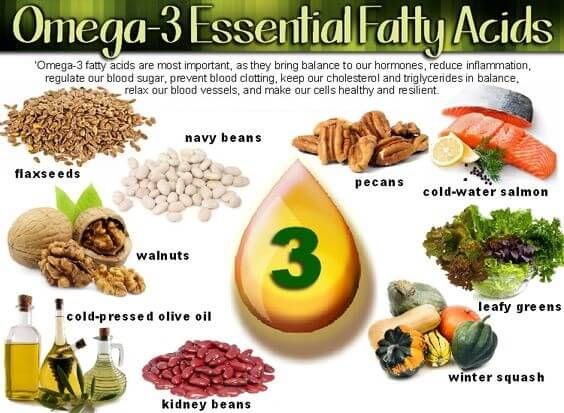
Omega-3 fatty acids are essential nutrients that are crucial for maintaining overall health and well-being. These fats play a crucial role in various bodily functions, such as brain health, heart health, and inflammation control. However, the body cannot produce omega-3s on its own, so it is important to obtain them through diet or supplements.
Benefits of Omega-3 Fatty Acids
Research has shown that omega-3 fatty acids can provide numerous health benefits, including:
Reducing the risk of heart disease
Improving brain function and memory
Reducing inflammation and joint pain
Supporting healthy skin and hair
Regulating mood and reducing symptoms of depression
Best Sources of Omega-3 Fatty Acids
Fatty Fish
Fatty fish, such as salmon, mackerel, and sardines, are some of the best natural sources of omega-3 fatty acids. These fish are rich in both EPA (eicosapentaenoic acid) and DHA (docosahexaenoic acid), which are two of the most beneficial forms of omega-3s.
Flaxseeds
Flaxseeds are a plant-based source of omega-3 fatty acids, specifically alpha-linolenic acid (ALA). While ALA is not as potent as EPA and DHA, it can still be converted into these forms by the body. Adding flaxseeds to your diet can help increase your omega-3 intake.
Chia Seeds
Chia seeds are another plant-based source of omega-3 fatty acids, containing high levels of ALA. These tiny seeds can easily be added to smoothies, salads, or yogurt to boost your omega-3 intake.
Walnuts
Walnuts are a great snack option that provides a good amount of ALA, making them a good plant-based source of omega-3 fatty acids. Incorporating walnuts into your diet can help increase your overall omega-3 intake.
Supplements
If you find it difficult to incorporate enough omega-3-rich foods into your diet, you may consider taking omega-3 supplements. Fish oil supplements are a popular choice, as they provide concentrated amounts of EPA and DHA. However, it is essential to consult with a healthcare provider before starting any new supplement regimen.
Conclusion
Omega-3 fatty acids are essential nutrients that play a vital role in overall health and well-being. Incorporating omega-3-rich foods into your diet, such as fatty fish, flaxseeds, chia seeds, and walnuts, can help you meet your omega-3 needs. Additionally, omega-3 supplements can be a useful option for those who struggle to obtain enough through diet alone. Prioritizing omega-3s in your diet can have a profound impact on your health and quality of life.

